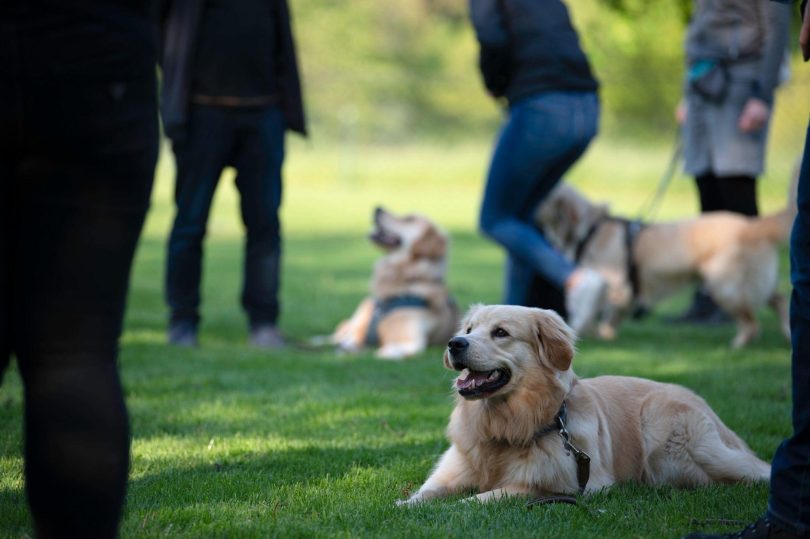Dog trainers can be expensive, though how much you pay for a dog trainer depends on the issues you need help with when it comes to training your dog and the type of trainer you work with. There are plenty of options for dog trainers, however, and this can help you find the best dog trainer for your needs and budget. Our article tells you the average cost of dog training in addition to giving you some insight into these costs and how to find a dog trainer.
Contents
When Do I Need Professional Dog Training?
While many people can train their dogs at home without the help of a professional, sometimes dog training is necessary. In many cases, individuals who have adopted a dog and do not have time to train consistently every day will opt to hire a dog trainer to help; individuals who are having challenges training their dogs or who need specialized training such as service dog training may also consult with a professional.
We recommend professional dog training if your dog is not responding to at-home training, or if your dog has serious behavioral issues that are affecting their life and the lives of other people or animals in your home. Dealing with this professional is often the safest way to help your dog.
How Do I Find a Dog Trainer?
Finding a dog trainer can be an overwhelming process, as there are many different options around today. When you start looking for a trainer, we recommend searching for the best dog trainers in your area; for instance, Dog Academy offers guides for most major cities, like this Philadelphia trainers’ guide. Once you have this decision made, you can find the best option for your budget and your dog training goals.
How Much Is a Dog Trainer?
Dog trainers can vary in price depending on their experience, your location, and the type of training that you need completed. On average, you can expect to pay between $25 and $150 an hour for your dog trainer.
You can expect dog trainers with more experience or those offering more specialized dog training, such as working with dogs who have serious behavioral issues, to be more expensive; high-cost-of-living areas may also have dog trainers that charge more per hour.
If you are simply looking for help with basic obedience or puppy training, you can expect to pay at the lower end of this range.
What Makes Dog Training Expensive?
Dog training is more expensive when a trainer has more skills or experience, or when your dog has behavioral issues that can potentially be dangerous. It often takes a lot of work and consistency to train dogs properly, especially ones with serious behavioral problems, and the expensive price you are paying helps to ensure you are investing in a trainer with the ability to help your dog thrive.
Does More Expensive Training Mean Better Training?
While some dog trainers can be more expensive than others, and sometimes it is necessary to pay a higher price for certain types of dog training, more expensive training doesn’t always mean that the training is better.
As you search for a dog trainer, you will need to look at the type of training they offer, the reviews for each trainer, and whether or not they have any applicable certifications or licenses.
Can I Train My Dog at Home?
It is totally possible to train your dog at home if you do not need anything more than basic obedience training for your dog. We recommend using an online course, however, if you plan to train at home, as this can help guide your activities with your dog and give you pointers if you find yourself stuck.
Solving Your Dog Training Needs
Dog training can be a confusing topic at first, as there are many different sources of information about how to find a dog trainer, the type of training your dog might need, and the overall cost of working with a professional dog trainer.
Now that you know the average price of a dog trainer, you have a better idea of what trainer to hire and how much you might need to pay to hire a trainer to help you with your dog. And if professional dog training isn’t for you, you can always train your dog from the comfort of your home using positive reinforcement techniques.







